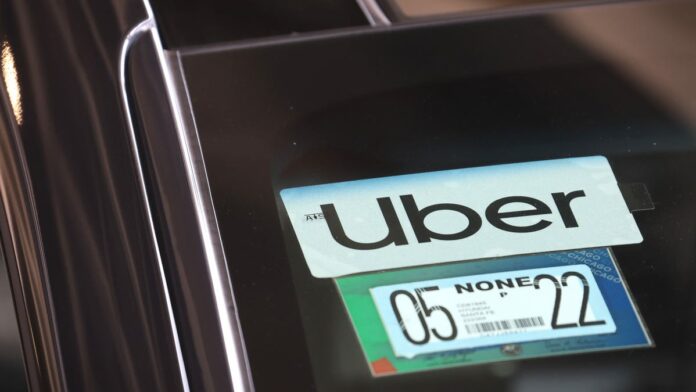On Wednesday, Uber rolled out a lineup of new safety features marketed for female passengers — following a long history of passenger and driver lawsuits accusing the company of failing to prevent harassment and assaults.
Uber’s new suite of features includes encrypted audio recordings, PIN verification, and live location sharing with friends and family. A fourth feature, RideCheck, detects if a ride ends early, stops unexpectedly, or goes off course. Aimed at helping women feel safer using Uber’s rideshare services at night, the features are available in the U.S., Canada, and Latin America as of Wednesday.
“At Uber, we get it,” the San Francisco-based company wrote in a blog post. “And we believe when we make the world safer for women we make it safer for everyone.”
Uber’s spotty rider safety
The new safety features come only after years of lawsuits from victims who accused Uber of failing to prevent sexual assaults against passengers, along with additional allegations that say the company has failed to conduct proper background checks or deliver adequate safety training.
According to the Lawsuit Information Center, a class-action-focused website operated by the Miller & Zois law firm, more than 400 lawsuits related to passenger assaults or harassment have been filed against Uber; some have been consolidated into a class-action case that includes more than 200 plaintiffs. The most recent complaint was filed on April 5 in federal court in California, with the plaintiff alleging they experienced sexual assault, harassment, and battery by an Uber driver in Suffolk County, Massachusetts, in October 2022.
And a lawsuit filed in federal court in Delaware last month accused Uber’s leadership of misrepresenting the safety of its services in public filings and advertisements. More than 9,000 sexual assault reports have been filed by Uber riders in recent years, including 141 cases of rape in 2020, according to Uber’s safety reports. Its last public report was published in June 2022.
Uber used what the plaintiffs in the Delaware lawsuit called a “cursory background check process” instead of implementing more “rigorous internal controls,” such as in-car cameras or enhanced driver background checks and screening.
The complaint representing the hundreds of plaintiffs noted a series of additional safety measures Uber could have implemented, including job interviews and biometric fingerprinting. It also stated some suggestions similar to what Uber announced Wednesday, including RideCheck.
The company in 2016 agreed to pay $28.5 million and adjust its marketing language promising “safe rides” to settle class-action lawsuits that affected 25 million consumers. Despite claiming to provide “industry-leading background checks,” Uber failed to check drivers against the national sex-offender registry or use fingerprint identification, according to the lawsuits.
A “safe rides fee”
Uber had introduced a $1 “safe rides fee” for every trip on its service from April 2014, justifying the extra cost to passengers by saying it would go toward improving safety features. However, the lawsuits accused it of failing to apply the fee toward vehicle safety inspections and driver training.
Uber collected nearly $500 million from the fee, which was created to add “ $1 of pure margin to each trip,” according to “Super Pumped: The Battle for Uber.”
“We boosted our margins saying our rides were safer,” a former employee told the book’s author, New York Times reporter Mike Isaac, at the time. “It was obscene,” they added.
After the settlement, Uber turned the “safe rides fee” into a “booking fee” that the company says helps cover safety, regulatory, and operational costs (like insurance).
Do rideshare safety programs even work?
Fellow rideshare service provider Lyft has been sued by dozens of consumers who allege that it has also failed to protect passengers and drivers from physical and sexual assault. The company’s 2021 safety report revealed that there were 4,158 reports of sexual assault on its app between 2017 and 2019.
In January, a Florida woman sued Lyft in federal court in California, alleging that she was raped by a Lyft driver in 2019 and that the assault resulted in her giving birth to her third child. At the time, Lyft told CNN — which first reported the Florida woman’s lawsuit — that “safety is fundamental to Lyft and the behavior described has no place in our society.”
In September 2023, Lyft launched Women+ Connect, a feature that allows women and nonbinary riders and drivers to request other women and nonbinary people as passengers or drivers. The feature was expanded in February to be available nationwide.
Lyft also offers a range of additional features, including one that shares a rider or drivers’ location and emergency assistance personnel. But to date, the company hasn’t released data showing that its features get results in protecting users from harassment or assault. It does say its service reduces cases of driving under the influence.


